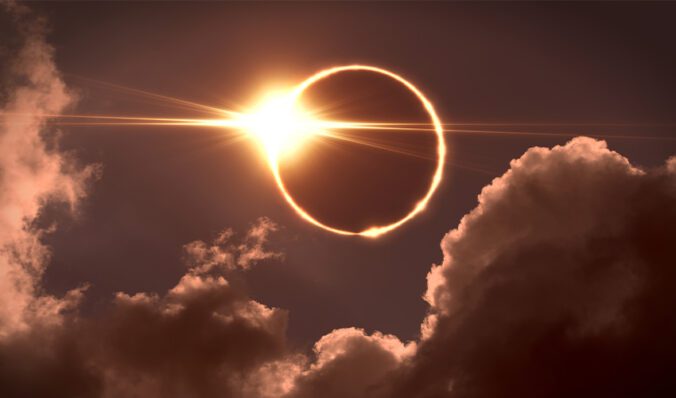Eclipses in Islam have a long recorded history, dating all the way back to before the time of Prophet Muhammad. There was an eclipse during Muhammad’s life and on that day his infant son, Ibrahim, died. Muhammad declared that the eclipse did not kill his son, denouncing the astrology of the day, and instead instructed his followers to say a “prayer to the eclipse” (şalat al-kusūf). Eventually, in 1431, astronomers became advanced enough to predict when the next eclipse would happen. They ran through the streets telling everyone that there would be an eclipse and that they should start fasting, however when the sky did not turn black, these men were denounced. They would later learn that these predictions were correct but Cairo only had 45% coverage, so the light wasn’t noticeably obstructed. These predictions are remarkable becuase they were able to go far with such (relatively) simple equipment
Source: Tārīkh-e ‘Elm: Iranian Journal for the History of Science, 6 (2008), pp. 75-82, Solar Eclipses in Medieval Islamic Civilization: A Note on Cultural and Social Aspects

Leave a Reply
You must be logged in to post a comment.